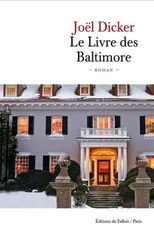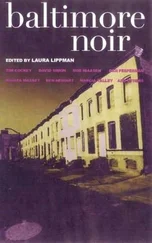Owen Wister - Lady Baltimore
Здесь есть возможность читать онлайн «Owen Wister - Lady Baltimore» весь текст электронной книги совершенно бесплатно (целиком полную версию без сокращений). В некоторых случаях можно слушать аудио, скачать через торрент в формате fb2 и присутствует краткое содержание. Жанр: Вестерн, на английском языке. Описание произведения, (предисловие) а так же отзывы посетителей доступны на портале библиотеки ЛибКат.
- Название:Lady Baltimore
- Автор:
- Жанр:
- Год:неизвестен
- ISBN:нет данных
- Рейтинг книги:5 / 5. Голосов: 1
-
Избранное:Добавить в избранное
- Отзывы:
-
Ваша оценка:
- 100
- 1
- 2
- 3
- 4
- 5
Lady Baltimore: краткое содержание, описание и аннотация
Предлагаем к чтению аннотацию, описание, краткое содержание или предисловие (зависит от того, что написал сам автор книги «Lady Baltimore»). Если вы не нашли необходимую информацию о книге — напишите в комментариях, мы постараемся отыскать её.
Lady Baltimore — читать онлайн бесплатно полную книгу (весь текст) целиком
Ниже представлен текст книги, разбитый по страницам. Система сохранения места последней прочитанной страницы, позволяет с удобством читать онлайн бесплатно книгу «Lady Baltimore», без необходимости каждый раз заново искать на чём Вы остановились. Поставьте закладку, и сможете в любой момент перейти на страницу, на которой закончили чтение.
Интервал:
Закладка:
"I am glad that you believe it never dies," he resumed. "And I am glad to find somebody to — talk to, you know. My friends here are everything friends and gentlemen should be, but they don't — I suppose it's because they have not had my special experiences."
I sat waiting for the boy to go on with it. How plainly he was telling me of his "special experiences"! He and his creed were not merely in revolt against the herd of swine; there would be nothing special in that; I had met people before who were that; but he was tied by honor, and soon to be tied by the formidable nuptial knot, to a specimen devotee of the cult. He shouldn't marry her if he really did not want to, and I could stop it! But how was I to begin spinning the first faint web of plan how I might stop it, unless he came right out with the whole thing? I didn't believe he was the man to do that ever, even under the loosening inspiration of drink. In wine lies truth, no doubt; but within him, was not moral elegance the bottom truth that would, even in his cups, keep him a gentleman, and control all such revelations? He might smash the glasses, but he would not speak of his misgivings as to Hortense Rieppe.
He began again, "Nor do I believe that a really nice girl would continue to think as those few do, if she once got safe away from them. Why, my dear sir," he stretched out his hand in emphasis, "you do not have to do anything untimely and extreme if you are in good earnest a dead game sport. The time comes, and you meet the occasion as the duck swims. There was one of them — the right kind."
"Where?" I asked.
"Why — you're leaning against her headstone!"
The little incongruity made us both laugh, but it was only for the instant. The tender mood of the evening, and all that we had said, sustained the quiet and almost grave undertone of our conference. My own quite unconscious act of rising from the grave and standing before him on the path to listen brought back to us our harmonious pensiveness.
"She was born in Kings Port, but educated in Europe. I don't suppose until the time came that she ever did anything harder than speak French, or play the piano, or ride a horse. She had wealth and so had her husband. He was killed in the war, and so were two of her sons. The third was too young to go. Their fortune was swept away, but the plantation was there, and the negroes were proud to remain faithful to the family. She took hold of the plantation, she walked the rice-banks in high boots. She had an overseer, who, it was told her, would possibly take her life by poison or by violence. She nevertheless lived in that lonely spot with no protector except her pistol and some directions about antidotes. She dismissed him when she had proved he was cheating her; she made the planting pay as well as any man did after the war; she educated her last son, got him into the navy, and then, one evening, walking the river-banks too late, she caught the fever and died. You will understand she went with one step from cherished ease to single-handed battle with life, a delicately nurtured lady, with no preparation for her trials."
"Except moral elegance," I murmured.
"Ah, that was the point, sir! To see her you would never have guessed it! She kept her burdens from the sight of all. She wore tribulation as if it were a flower in her bosom. We children always looked forward to her coming, because she was so gay and delightful to us, telling us stories of the old times — old rides when the country was wild, old journeys with the family and servants to the Hot Springs before the steam cars were invented, old adventures, with the battle of New Orleans or a famous duel in them — the sort of stories that begin with (for you seem to know something of it yourself, sir) 'Your grandfather, my dear John, the year that he was twenty, got himself into serious embarrassments through paying his attentions to two reigning beauties at once.' She was full of stories which began in that sort of pleasant way."
I said: "When a person like that dies, an impoverishment falls upon us; the texture of life seems thinner."
"Oh, yes, indeed! I know what you mean — to lose the people one has always seen from the cradle. Well, she has gone away, she has taken her memories out of the world, the old times, the old stories. Nobody, except a little nutshell of people here, knows or cares anything about her any more; and soon even the nutshell will be empty." He paused, and then, as if brushing aside his churchyard mood, he translated into his changed thought another classic quotation: "But we can't dawdle over the 'tears of things'; it's Nature's law. Only, when I think of the rice-banks and the boots and the pistol, I wonder if the Newport ladies, for all their high-balls, could do any better!"
The crimson had faded, the twilight was altogether come, but the little noiseless breeze was blowing still; and as we left the quiet tombs behind us, and gained Worship Street, I could not help looking back where slept that older Kings Port about which I had heard and had said so much. Over the graves I saw the roses, nodding and moving, as if in acquiescent revery.
VII: The Girl Behind the Counter — II
"Which of them is idealizing?" This was the question that I asked myself, next morning, in my boarding-house, as I dressed for breakfast; the next morning is — at least I have always found it so — an excellent time for searching questions; and to-day I had waked up no longer beneath the strong, gentle spell of the churchyard. A bright sun was shining over the eastern waters of the town, I could see from my upper veranda the thousand flashes of the waves; the steam yacht rode placidly and competently among them, while a coastwise steamer was sailing by her, out to sea, to Savannah, or New York; the general world was going on, and — which of them was idealizing? It mightn't be so bad, after all. Hadn't I, perhaps, over-sentimentalized to myself the case of John Mayrant? Hadn't I imagined for him ever so much more anxiety than the boy actually felt? For people can idealize down just as readily as they can idealize up. Of Miss Hortense Rieppe I had now two partial portraits — one by the displeased aunts, the other by their chivalric nephew; in both she held between her experienced lips, a cigarette; there the similarity ceased. And then, there was the toboggan fire-escape. Well, I must meet the living original before I could decide whether (for me, at any rate) she was the "brute" as seen by the eyes of Mrs. Gregory St. Michael, or the "really nice girl" who was going to marry John Mayrant on Wednesday week. Just at this point my thoughts brought up hard again at the cake. No; I couldn't swallow that any better this morning than yesterday afternoon! Allow the gentleman to pay for the feast! Better to have omitted all feast; nothing simpler, and it would have been at least dignified, even if arid. But then, there was the lady (a cousin or an aunt — I couldn't remember which this morning) who had told me she wasn't solicitous. What did she mean by that? And she had looked quite queer when she spoke about the phosphates. Oh, yes, to be sure, she was his intimate aunt! Where, by the way, was Miss Rieppe?
By the time I had eaten my breakfast and walked up Worship Street to the post-office I was full of it all again; my searching thoughts hadn't simplified a single point. I always called for my mail at the post-office, because I got it sooner; it didn't come to the boarding-house before I had departed on my quest for royal blood, whereas, this way, I simply got my letters at the corner of Court and Worship streets and walked diagonally across and down Court a few steps to my researches, which I could vary and alleviate by reading and answering news from home.
It was from Aunt Carola that I heard to-day. Only a little of what she said will interest you. There had been a delightful meeting of the Selected Salic Scions. The Baltimore Chapter had paid her Chapter a visit. Three ladies and one very highly connected young gentleman had come — an encouragingly full and enthusiastic meeting. They had lunched upon cocoa, sherry, and croquettes, after which all had been more than glad to listen to a paper read by a descendant of Edward the Third and the young gentleman, a descendant of Catherine of Aragon, had recited a beautiful original poem, entitled "My Queen Grandmother." Aunt Carola regretted that I could not have had the pleasure and the benefit of this meeting, the young gentleman had turned out to be, also, a refined and tasteful musician, playing, upon the piano a favorite gavotte of Louis the Thirteenth "And while you are in Kings Port," my aunt said; "I expect you to profit by associating with the survivors of our good American society — people such as one could once meet everywhere when I was young, but who have been destroyed by the invasion of the proletariat. You are in the last citadel of good-breeding. By the way, find out, if you can, if any of the Bombo connection are extant; as through them I should like, if possible, to establish a chapter of the Scions in South Carolina. Have you, met a Miss Rieppe, a decidedly striking young woman, who says she is from Kings Port, and who recently passed through here with a very common man dancing attendance on her? He owns the Hermana, and she is said to be engaged to him."
Читать дальшеИнтервал:
Закладка:
Похожие книги на «Lady Baltimore»
Представляем Вашему вниманию похожие книги на «Lady Baltimore» списком для выбора. Мы отобрали схожую по названию и смыслу литературу в надежде предоставить читателям больше вариантов отыскать новые, интересные, ещё непрочитанные произведения.
Обсуждение, отзывы о книге «Lady Baltimore» и просто собственные мнения читателей. Оставьте ваши комментарии, напишите, что Вы думаете о произведении, его смысле или главных героях. Укажите что конкретно понравилось, а что нет, и почему Вы так считаете.










